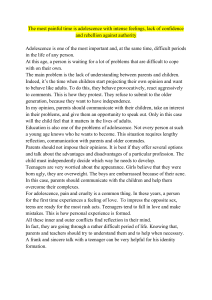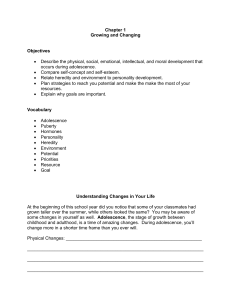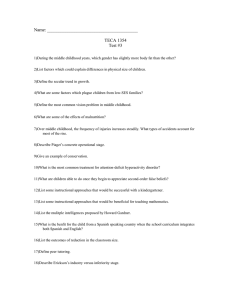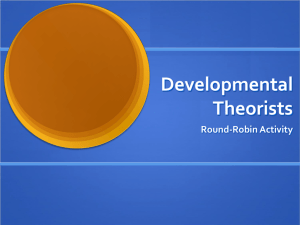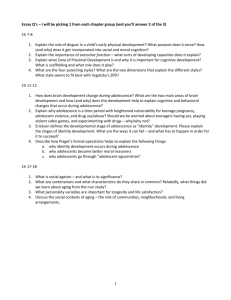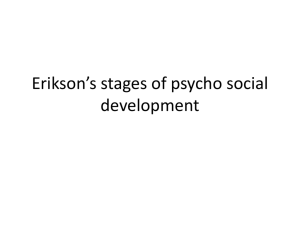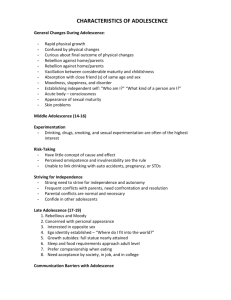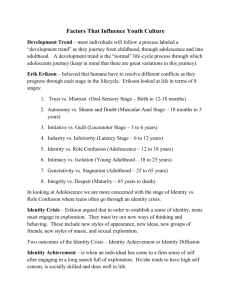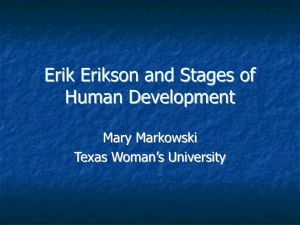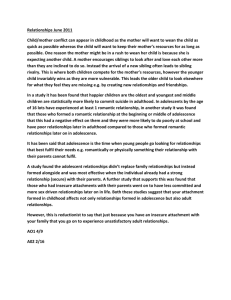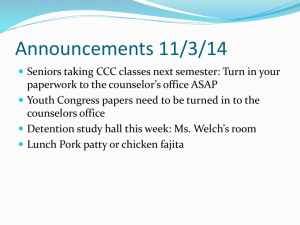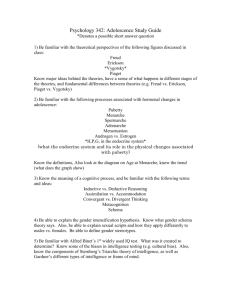Chapter 1: Introduction to Psychology (pages 17– 38)
advertisement
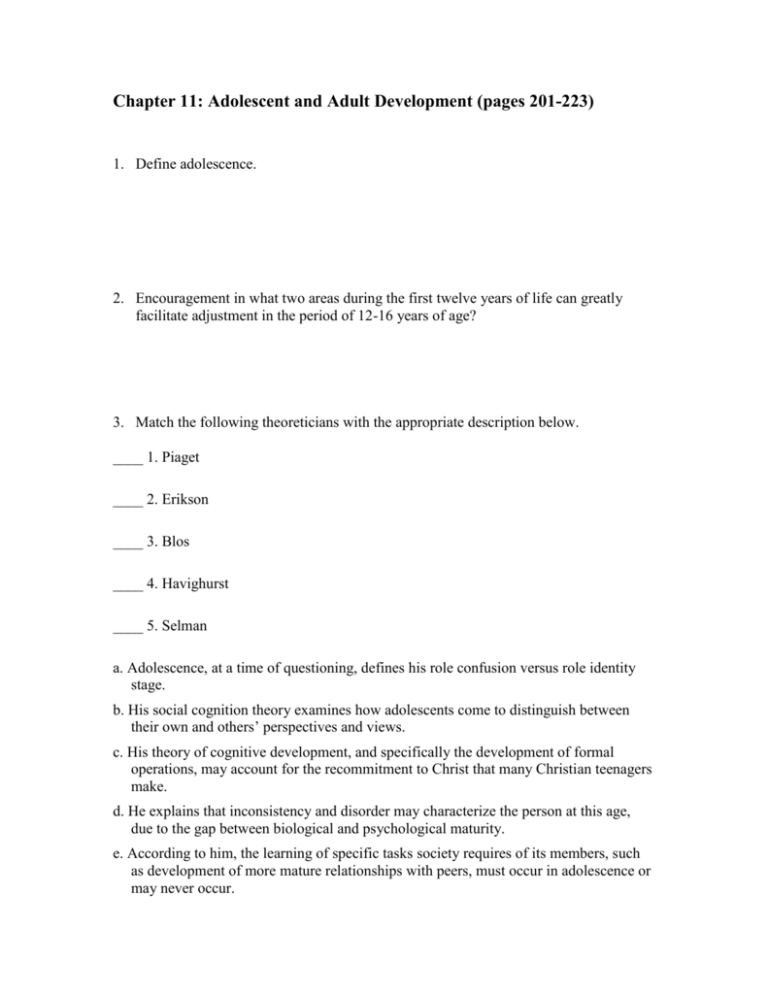
Chapter 11: Adolescent and Adult Development (pages 201-223) 1. Define adolescence. 2. Encouragement in what two areas during the first twelve years of life can greatly facilitate adjustment in the period of 12-16 years of age? 3. Match the following theoreticians with the appropriate description below. ____ 1. Piaget ____ 2. Erikson ____ 3. Blos ____ 4. Havighurst ____ 5. Selman a. Adolescence, at a time of questioning, defines his role confusion versus role identity stage. b. His social cognition theory examines how adolescents come to distinguish between their own and others’ perspectives and views. c. His theory of cognitive development, and specifically the development of formal operations, may account for the recommitment to Christ that many Christian teenagers make. d. He explains that inconsistency and disorder may characterize the person at this age, due to the gap between biological and psychological maturity. e. According to him, the learning of specific tasks society requires of its members, such as development of more mature relationships with peers, must occur in adolescence or may never occur. 4. How can real or perceived rejection by fathers of daughters impact a daughter later in life? 5. What does depression in teenagers look like? How can it be treated? 6. At what age does conformity peak? 7. When is the sex drive greatest in males? In females? 8. In what part of adolescence does genuine love for someone of the opposite sex become possible? 9. In what part of adolescence are many ready to make meaningful commitments to Christ, think seriously about career and life goals, and define the type of person with whom they want to spend the rest of their life? 10. List the three periods of the adult years. 11. List the crisis that must be resolved, according to Erikson, in each of these periods. 12. List the four changes necessary for successful adjustment in middle age/middle adulthood. 13. According to Levinson, during what age is a person in transition, consistent with the supposed “midlife crisis”? 14. List two (of the many) potential stressors for the elderly.
